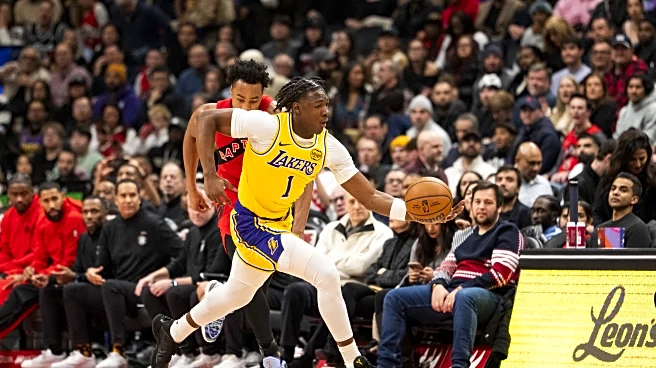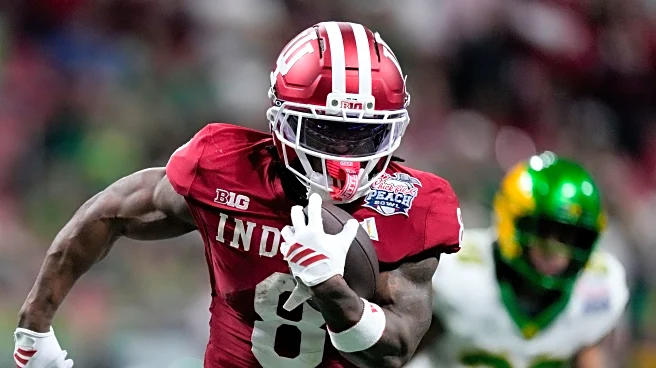Rapid Read • 8 min read
President Trump has characterized several U.S. cities led by Black mayors as crime-ridden and has initiated federal intervention by deploying National Guard troops to Washington, D.C. and potentially other cities. This move comes despite significant declines in violent crime reported by these cities. Mayors from cities like Baltimore, Chicago, Los Angeles, and Oakland have highlighted their achievements in reducing crime rates through community engagement and public health approaches. The African American Mayors Association is actively working to counter Trump's narrative, emphasizing the progress made in their cities.
AD
The federal intervention led by President Trump raises concerns about the militarization of policing in predominantly Black communities and the potential undermining of local efforts to reduce crime through community-based strategies. The mayors argue that Trump's actions could overshadow their successes and perpetuate negative stereotypes about urban areas. This situation highlights the ongoing tension between federal and local governance, particularly in cities with significant minority leadership. The broader implications include potential shifts in public policy and law enforcement practices, as well as the impact on community trust and safety.
Mayors are closely monitoring the situation in Washington, D.C., where Mayor Muriel Bowser is navigating the federal intervention. Legal challenges have already been initiated against the administration's actions, and further resistance from local leaders is expected. The mayors are likely to continue advocating for federal support in areas like gun trafficking and cybercrime rather than military presence. The outcome of these interventions could influence future federal-local relations and set precedents for handling urban crime.
The intervention by President Trump may have deeper implications for racial and political dynamics in the U.S. The focus on cities led by Black mayors raises questions about racial bias and political motivations behind federal actions. The situation also underscores the importance of community-led initiatives in achieving sustainable crime reduction and the potential risks of federal overreach.
AD
More Stories You Might Enjoy












